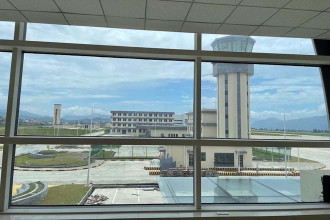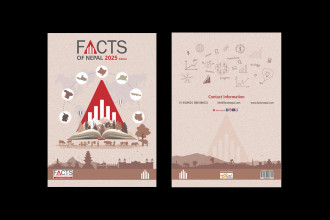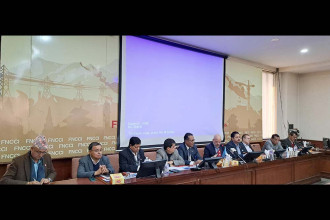KATHMANDU: The Confederation of Nepalese Industries (CNI) and the Ministry of Physical Infrastructure and Transport (MoPIT) jointly organised Nepal Infrastructure Summit 2024 in Kathmandu today.
In his welcome speech, CNI President Rajesh Kumar Agrawal, called for urgent infrastructure financing to meet Nepal’s sustainable development goals (SDGs) by 2030. “Nepal needs to accelerate its efforts towards infrastructure financing to fulfil its SDGs by 2030,” Agrawal emphasised.
The summit aims to explore innovative strategies and technologies for sustainable infrastructure. Agrawal highlighted the need for significant investments in energy, transport, and urban infrastructure, stressing the importance of PPPs. “Investment in good infrastructure makes the country wealthy,” he said, challenging the misconception that wealth leads to good infrastructure.
Agrawal also cited India’s Hybrid Annuity Model as a successful example of innovative financing. He urged stakeholders to collaborate and secure resources for Nepal’s infrastructure ambitions. “The Nepal Infrastructure Summit 2024 is a call to action for all stakeholders,” he declared.
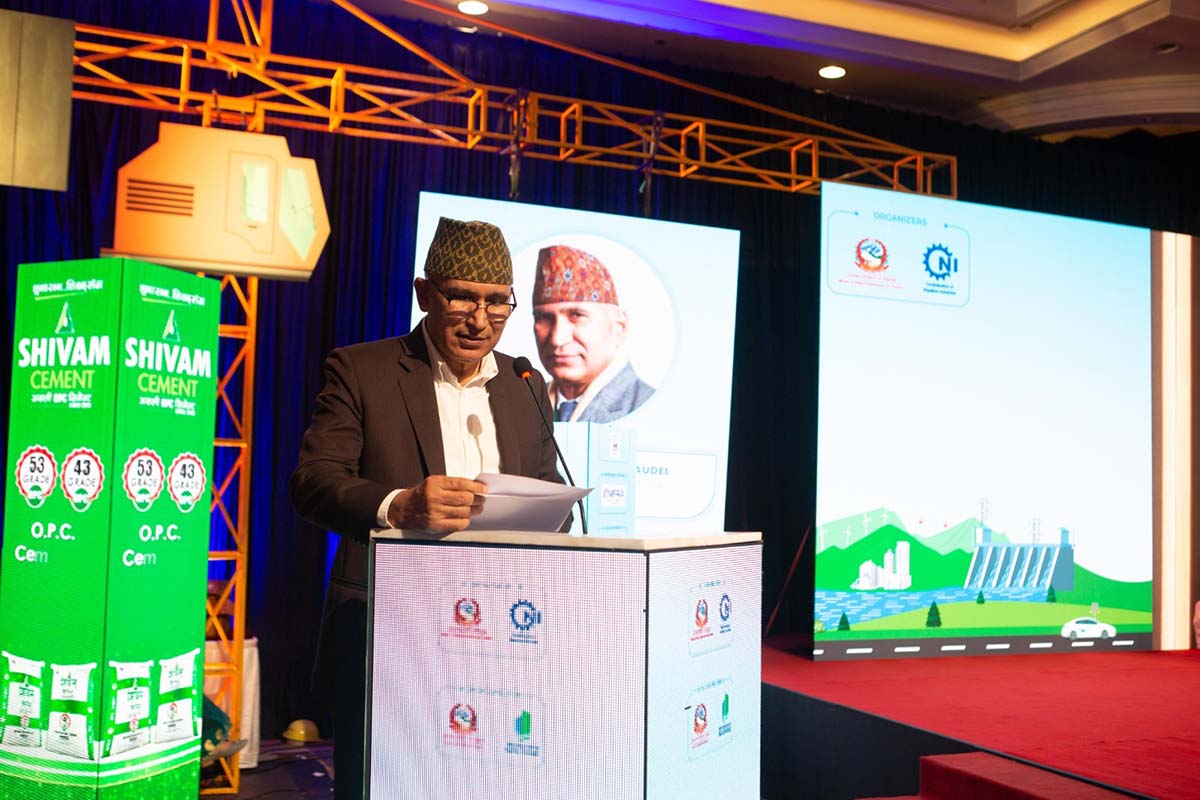
Speaking on the occasion, Deputy Prime Minister and Finance Minister Bishnu Prasad Paudel stated that the government will increase the budget allocation for capital spending to intensify infrastructure development.
He emphasised the government's commitment to overcoming legal and policy barriers and prioritising foreign aid for physical infrastructure development. "These efforts are aimed at building a 'Prosperous Nepal, Happy Nepalis'," he stated.
Finance Minister Paudel highlighted the urgent need for sustainable, quality, and resilient physical infrastructures. He assured that public finances would be mobilised with strict economic and fiscal discipline and financial accountability.
Additionally, he mentioned that financial and monetary policies would be made relevant and timely. The Finance Minister acknowledged the challenges of infrastructure development in Nepal, given its landlocked status and difficult geography.
Addressing the summit, Prime Minister KP Sharma Oli emphasised the critical role of infrastructure in the national economy and future development. "Infrastructure is not merely the physical framework upon which our cities and communities stand; it is the very lifeblood of our economy and the foundation upon which we build our future," he stated. He highlighted the importance of clean energy and industrial infrastructure for sustainable development.
PM Oli stressed that infrastructure development is a top priority for Nepal, essential for economic growth and social development. He expressed concern over the long-term neglect of roads, bridges, and public transit systems, which has led to increased traffic congestion and delayed services.
He underscored the need for enhancing clean energy, IT, and urban infrastructure to spur growth. "It’s about creating jobs. Infrastructure strengthens our communities, enables businesses to thrive, and ensures that every Nepali can access opportunities, no matter where they live," he remarked.
The Prime Minister also highlighted the importance of Public-Private Partnerships (PPPs) and innovative financing models. He called for collaborative efforts to achieve the shared vision of 'Happy Nepali and Prosperous Nepal'. "The government is always ready to collaborate with the private sector for infrastructure growth," he stated.
With federalisation, infrastructure needs have increased, requiring collaboration among all levels of government. PM Oli noted that Nepal has shown resilience in overcoming economic challenges, including the impact of Covid 19, and is gradually recovering. He emphasised the government's readiness to support both national and international investors.
Experts call for prioritising green infrastructure for sustainable development
Stakeholders at the summit recommended focusing on green infrastructure in the long term, citing that Nepal is in the early stages of infrastructure development. Experts made this suggestion during the first session of the summit.
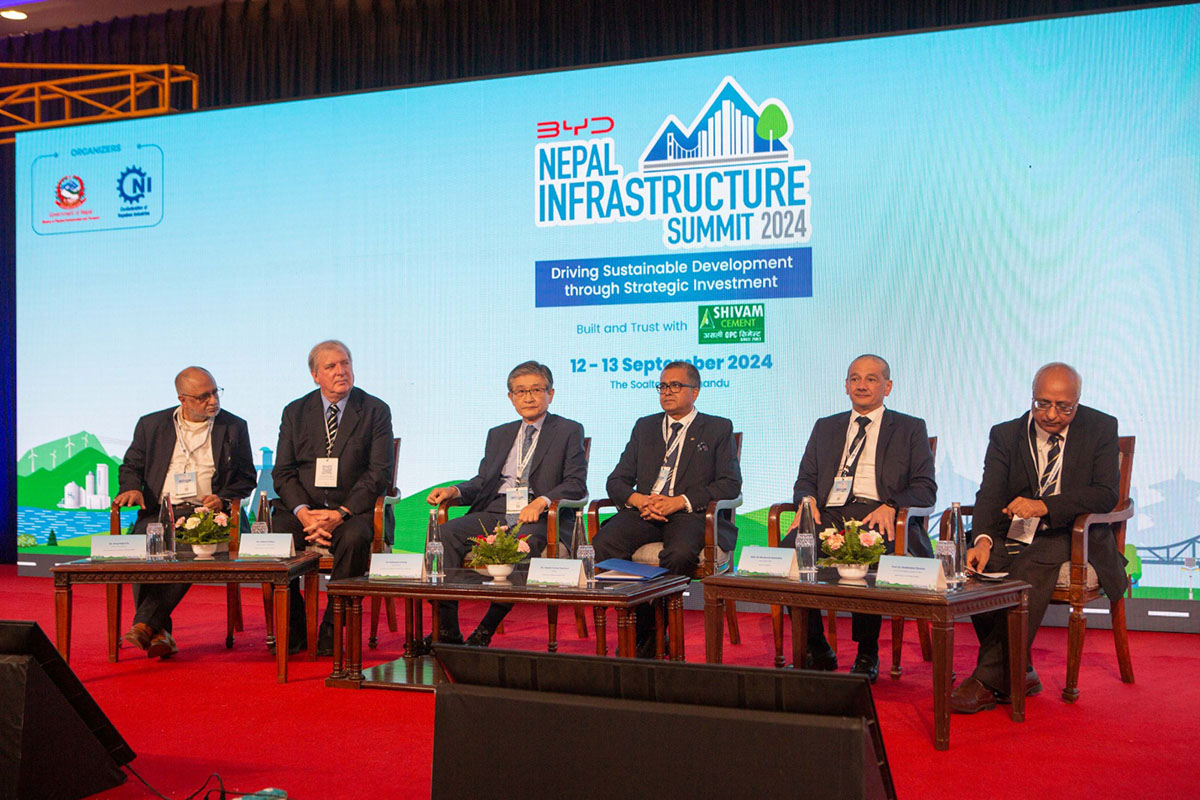
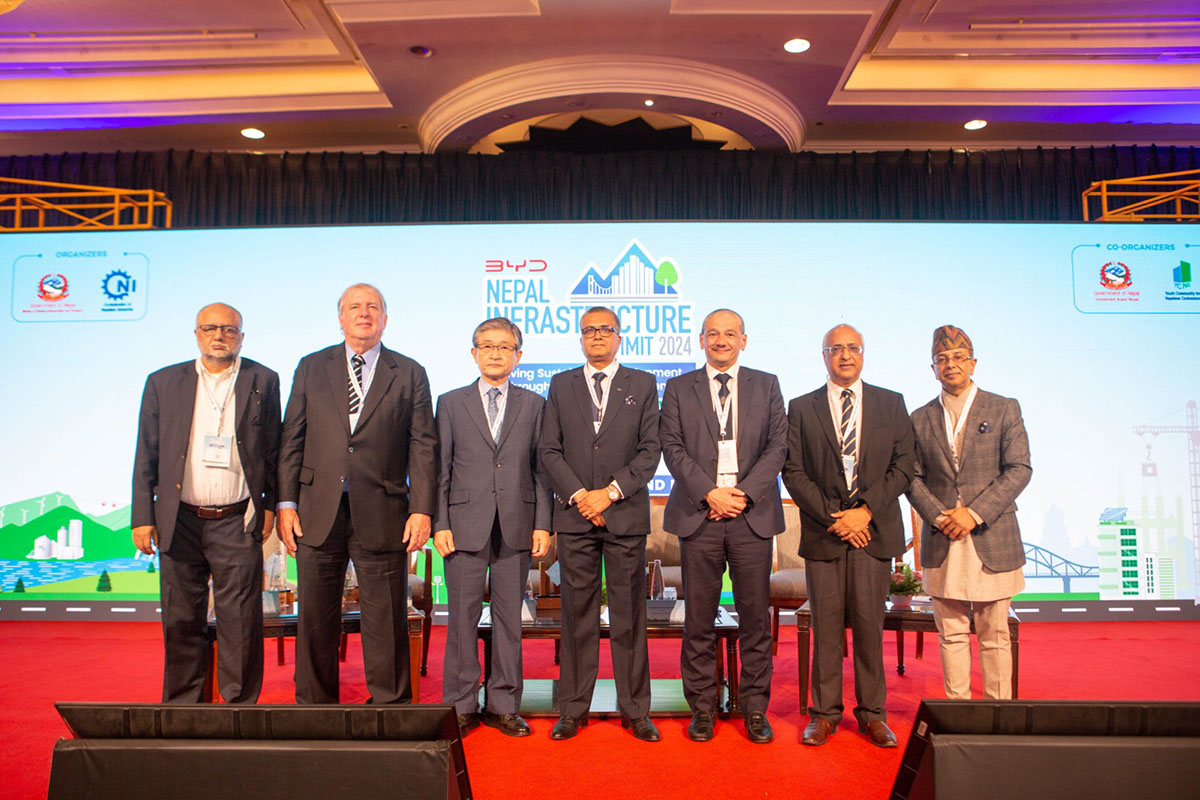
CNI President Agrawal presided over the session, titled ‘Sustainable Development’. Speakers included Chung Rae Kwon, Director of the Ban Ki-moon Foundation for a Better Future, South Korea; Dennis Ganendra, President and CEO of Minconsult, Malaysia; Robert Dobias, Advisor at the Climate Change Centre, National Research Council of Thailand; and Arup Rajauriya, President of Climate Change and Co-existing Worldwide (CCCEW). They presented their recommendations on sustainable development.
They suggested that infrastructure development in Nepal has been minimal and that investments should focus on green development connected with nature rather than concrete infrastructure. They argued that sustainable development is achievable through investment in green infrastructure. They emphasised the need for infrastructure that does not harm nature, uses low-carbon raw materials, and promotes public transport over private vehicles.
Chung mentioned that South Korea has realised the mistake of investing solely in grey infrastructure and is now prioritising green infrastructure. "When developing infrastructure, the social cost of carbon and climate change must be considered. Without this, proper infrastructure development is impossible," he said. Chung added that this is also reflected in Return on Investment (ROI) and Internal Rate of Return (IRR) calculations. He mentioned that many developed countries have recognised the importance of green infrastructure and are now working to improve it.
Likewise, Dobias suggested that future development should not disturb nature.
Ganendra highlighted the need for circularity in the economy and urged the private sector to invest using existing technologies. “There are many options for developing green infrastructure, but we must overcome the obstacles,” he said. He pointed out that due to the uncertainty of the future caused by climate change, it is essential to plan how new infrastructure will impact existing structures.
The private sector’s crucial role in raising investment for infrastructure was also highlighted during the first session. Although the return on green infrastructure is low, government support at the policy level is necessary for raising investment, according to stakeholders. They recommended advancing green bonds in an integrated manner to invest in green infrastructure.




